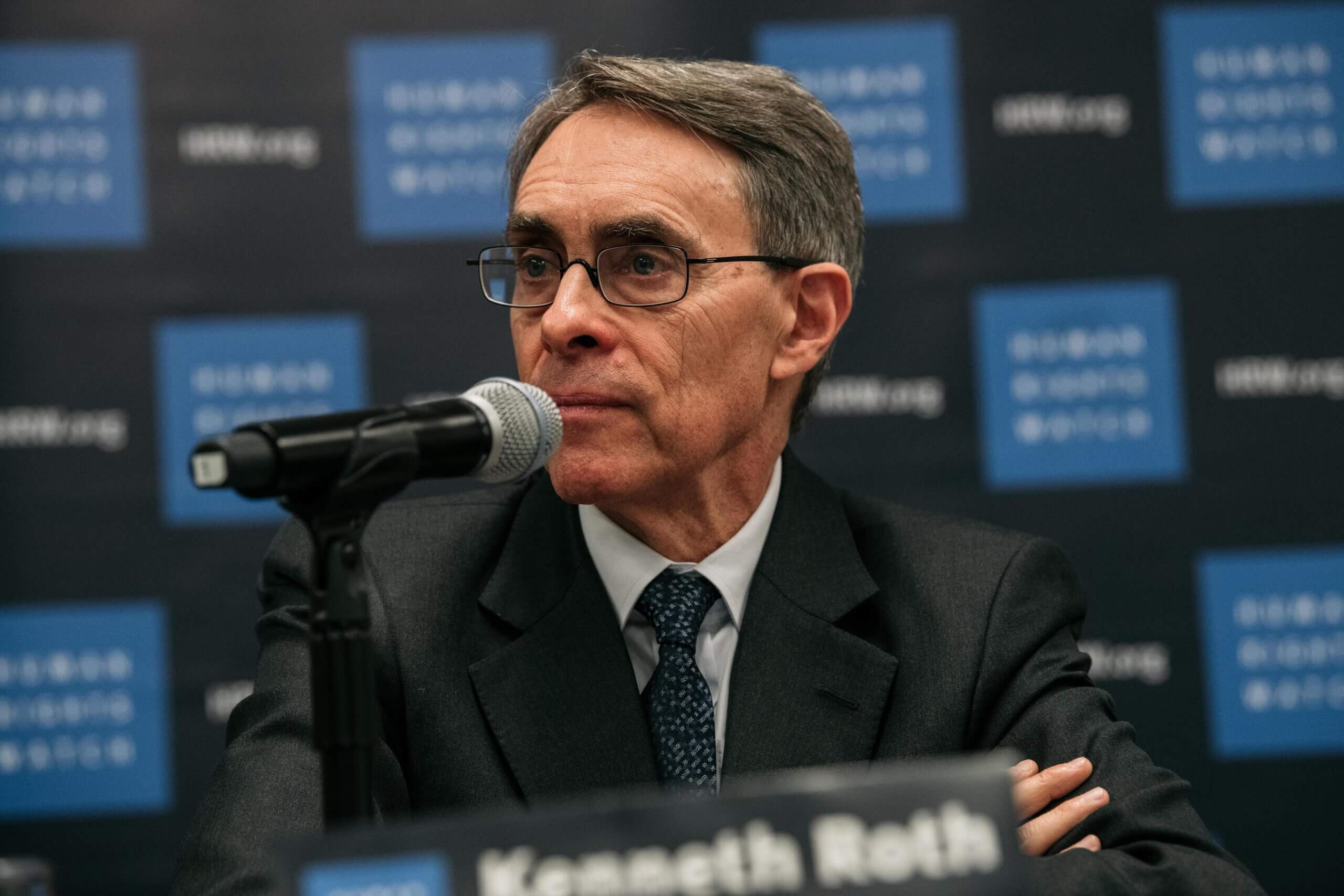Kenneth Roth, the longtime Human Rights Watch director who stepped down last year, said that the dean of Harvard’s Kennedy School vetoed his planned fellowship over the organization’s work on Israel. Photo by Getty Images
Kenneth Roth, the longtime director of Human Rights Watch, said that Harvard’s Kennedy School denied him a planned fellowship over the organization’s work on Israel. Roth made the allegations to The Nation, a liberal periodical, in an article published Thursday.
“It’s crazy,” he said.
Shortly after he stepped down at director of Human Rights Watch in April, Roth was offered a fellowship at the Carr Center for Human Rights Policy at the Kennedy School, Harvard’s sprawling network of programs related to public policy. But Douglas Elmendorf, the Kennedy School’s dean, subsequently intervened to reject Roth’s fellowship, according to the Nation.
Roth said Elmendorf asked him during a meeting whether Roth had any enemies. “I knew what he was driving at,” said Roth, who is Jewish. “It’s always Israel.”
Roth grew HRW significantly after he was hired in 1993, swelling its budget from $7 million to nearly $100 million and staff from 60 to 550. The New York Times called him the “godfather” of human rights. Along the way, he has racked up opponents in governments across the world who object to HRW’s accusations. But his work on Israel has been especially controversial. The organization was the first major international human rights group to accuse Israel of apartheid when it released a report in 2021. The claim followed two similar ones leveled by Israeli rights organizations, and Amnesty International released a similar report in 2022.
Roth and HRW had already been accused of anti-Israel bias by Robert Bernstein, the organization’s founder, in a 2009 article criticizing the group for “issuing reports on the Israeli-Arab conflict that are helping those who wish to turn Israel into a pariah state.”
The faculty of the Carr Center rejected these allegations. Kathryn Sikkink sent a detailed email to Elmendorf pointing out that HRW’s reports on Israel were “pretty similar” to the State Department’s assessments of the country’s human rights record.
“The Kennedy school lost out by not having him with us,” Sikkind said.
Michael Massing, the Nation writer, also pointed out that the Kennedy School has hosted a long list of controversial fellows with fewer credentials than Roth including former Trump officials Sean Spicer and Corey Lewandowski. Massing attributed Elmendorf’s decision to veto Roth’s appointment to a combination of factors, including the influence of pro-Israel donors and faculty and a fear of embroiling the school in a controversy related to Israel.
Harvard’s student newspaper, the Crimson, provoked an extended outcry from some faculty and prominent alumni after it endorsed a boycott of Israel last year.
A Kennedy School spokesman told the Nation that it does not “discuss our deliberations about individuals who may be under consideration” for fellowships.
Roth has since accepted a post at the University of Pennsylvania.



